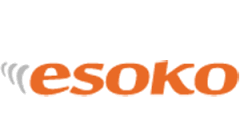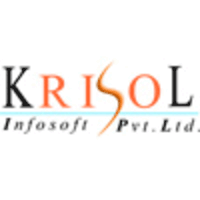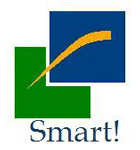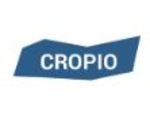Description

Esoko

Krisol - ERP for Agriculture industry
Comprehensive Overview: Esoko vs Krisol - ERP for Agriculture industry
Esoko and Krisol ERP are both technology solutions aimed at enhancing the agricultural industry, though they serve distinct functions and target different aspects of the sector. Here's an overview of each, including a comparison of their market presence and differentiating factors:
Esoko
a) Primary Functions and Target Markets
- Primary Functions: Esoko is primarily a communication and data collection platform tailored for agricultural stakeholders. It provides services such as market price alerts, weather forecasts, advisory services, and data collection tools. Its core function is to connect smallholder farmers with markets, extension services, and financial institutions, thus enabling better decision-making.
- Target Markets: Esoko primarily targets smallholder farmers, cooperatives, NGOs, and government agencies in Sub-Saharan Africa. Its focus is on enhancing information accessibility and ensuring digital inclusion for rural farmers.
b) Market Share and User Base
- Esoko has established a significant presence in several African countries, including Ghana, Kenya, Malawi, and Tanzania. While it may not lead the market in terms of user base compared to more globally-reaching platforms, it holds substantial influence within its operational regions, particularly due to its tailored services that meet the local demands of African agricultural communities.
c) Key Differentiating Factors
- Focus on Communication and Information Sharing: Esoko stands out for its commitment to enhancing communication among various agricultural stakeholders. It prioritizes the flow of relevant, timely information to farmers.
- Localization and Customization: The platform offers services and interfaces tailored to local languages and cultural practices, which boosts its acceptance and effectiveness in its target markets.
Krisol ERP
a) Primary Functions and Target Markets
- Primary Functions: Krisol ERP is an enterprise resource planning system designed specifically for the agriculture sector. It encompasses modules that cover supply chain management, financial management, inventory management, production planning, and compliance tracking. Its primary goal is to optimize operational efficiencies across agricultural enterprises.
- Target Markets: The target customers for Krisol ERP are medium to large-scale agricultural enterprises, agribusinesses, and supply chain companies that require integrated solutions to manage their resources and operations efficiently.
b) Market Share and User Base
- Krisol ERP's market reach extends globally, focusing on agribusinesses that place a premium on process efficiency and resource management. Though specific numbers on its market share might not be publicly detailed, ERP solutions typically have a concentrated user base due to the niche and enterprise-specific nature of the software.
c) Key Differentiating Factors
- Comprehensive ERP Functionality: Krisol ERP is distinguished by its all-inclusive approach to managing a wide range of agricultural business processes, integrating different operational domains into a single platform.
- Scalability and Customization for Large Enterprises: The platform is designed to support the complex needs of large agricultural businesses, offering more extensive scalability and customization options compared to smaller, communication-focused tools like Esoko.
Comparison and Key Differentiators
- Regional vs. Enterprise Focus: Esoko focuses on empowering individual farmers and smaller cooperatives primarily in Africa with communication and information services. In contrast, Krisol ERP targets larger agribusinesses globally, offering comprehensive enterprise solutions.
- Solution Depth vs. Breadth: Esoko provides deep communication and data insight services, often customized for local use. Krisol ERP places emphasis on an integrated suite of applications to cover the broad needs of complex agricultural enterprises.
- Technology and Infrastructure: While Esoko relies on mobile technology to reach its users, Krisol ERP typically requires more significant infrastructure and is suited for organizations with existing technological capabilities to support ERP systems.
These differences highlight the distinct roles each platform plays within the agriculture industry, catering to various scales and aspects of agricultural operations.
Contact Info

Year founded :
Not Available
+257 22 28 03 20
Not Available
Burundi
http://www.linkedin.com/company/esokoshop

Year founded :
Not Available
Not Available
Not Available
Not Available
Not Available
Feature Similarity Breakdown: Esoko, Krisol - ERP for Agriculture industry
Certainly! When comparing Esoko and Krisol - ERP in the context of the agriculture industry, it’s important to consider their core functionalities, user interfaces, and unique features. Here’s a breakdown based on these aspects:
a) Core Features in Common
Both Esoko and Krisol - ERP aim to enhance efficiency and decision-making for stakeholders in the agriculture sector. Common core features typically include:
-
Data Management: Both platforms likely provide robust data management capabilities, allowing users to store and analyze agricultural data such as crop yields, soil quality, and market prices.
-
Communication Tools: These systems often include tools for connecting farmers with markets, suppliers, and buyers, facilitating better communication and transaction management.
-
Market Information: Both products provide access to market information such as pricing updates, supply-demand trends, and potential buyer connections, assisting farmers in making informed decisions.
-
Financial Management: Features that assist with budgeting, accounting, and financial reporting are commonly found in both systems, enabling users to keep track of resources and financial health.
-
Analytics and Reporting: Both systems typically offer analytics and reporting functionalities to help users interpret data and make strategic decisions.
b) User Interface Comparison
While I cannot provide specific aesthetic or stylistic descriptions, here’s a general comparison:
-
Usability: Both systems are designed to be user-friendly, but they may differ in the level of customization and flexibility offered to users. Esoko might focus more on simplicity and accessibility, catering to a wide range of users, including those with limited technological proficiency.
-
Design Approach: Krisol, being an ERP system, may feature a more structured interface with customizable dashboards and modules that focus on process automation and integration, which is typical of enterprise software.
-
Platform Access: Both systems are likely accessible via web and mobile applications, but there might be variation in the user experience and responsiveness, given the differences in target audiences and primary functions.
c) Unique Features
-
Unique Features in Esoko:
- SMS Services: Esoko is known for its SMS-based services that deliver real-time market data and weather updates directly to farmers' mobile phones, which can be crucial for those in regions with limited internet access.
- Field Extension Tools: Focus on agricultural extension services, offering tools for field agents to help farmers adopt best practices through ground support.
-
Unique Features in Krisol - ERP:
- Comprehensive ERP Modules: Krisol may offer more extensive ERP modules that cover broader business functions like supply chain management, inventory controls, and customer relationship management tailored for agricultural operations.
- Integration Capabilities: Greater emphasis on integrating with other enterprise systems (e.g., accounting software, CRM), which can offer a more holistic solution for large-scale agricultural businesses.
In summary, while there are many overlaps in the core functionalities related to agriculture market facilitation and data management, Esoko focuses more on accessible communication and field support tools, whereas Krisol - ERP leans towards comprehensive enterprise resource planning with extensive integration capabilities. The choice between them would largely depend on the user’s specific operational needs and technology infrastructure.
Features

Financial Services
Market Information
Supply Chain Management
Farmer Support

Reporting & Analytics
Crop Management
Inventory & Supply Chain
Labor Management
Financial Management
Best Fit Use Cases: Esoko, Krisol - ERP for Agriculture industry
a) Esoko: Best Fit Use Cases
Esoko is a digital platform primarily focused on providing agricultural data and solutions for smallholder farmers, agribusinesses, non-governmental organizations (NGOs), and government agencies in developing countries. Its services include market prices, weather information, and extension services through SMS, mobile apps, and web-based platforms.
-
Smallholder Farmers and Cooperatives: Esoko is particularly beneficial for smallholder farmers who need access to real-time market information, agricultural advice, and weather forecasts. It helps them make informed decisions on crop planting, harvesting, and selling.
-
Agribusinesses: Companies involved in buying and selling agricultural products can use Esoko to streamline supply chain management by obtaining accurate market data and connecting with a wide network of farmers.
-
NGOs and Development Projects: Organizations working on rural development projects and food security initiatives can leverage Esoko to disseminate critical information to farming communities and monitor project impacts.
-
Government Agencies: Government bodies looking to enhance food security and rural development can deploy Esoko to provide essential information services to farmers, thereby improving productivity and livelihoods.
b) Krisol - ERP for Agriculture Industry: Preferred Scenarios
Krisol ERP is a comprehensive enterprise resource planning system designed specifically for the agriculture industry. It covers various aspects of farm management, supply chain, and financial operations, making it suitable for larger agricultural enterprises and agribusiness companies.
-
Large Farms and Agricultural Enterprises: Krisol ERP is ideal for large-scale farms and businesses that require integration of multiple functions such as crop production, inventory management, financials, and sales tracking.
-
Integrated Agribusinesses: Companies that operate across multiple levels of the agricultural value chain—from production to processing to distribution—can benefit from Krisol’s ability to manage complex business processes in an integrated manner.
-
Supply Chain Management: For businesses needing robust supply chain solutions, Krisol aids in tracking production metrics, optimizing inventory, and ensuring comprehensive logistics management.
-
Financial and Resource Planning: Companies requiring detailed financial oversight and resource allocation can use Krisol ERP to manage budgets, track expenses, and generate financial reports.
d) Catering to Different Industry Verticals or Company Sizes
-
Esoko: This platform primarily targets small to medium-sized agricultural enterprises and projects focused on rural development. It caters well to emerging markets and regions where access to information is a critical barrier to agricultural productivity. Esoko’s scalable solution can be customized to meet the needs of different agricultural sectors, including crops, livestock, and fisheries, focusing on enhancing communication and data accessibility.
-
Krisol - ERP for Agriculture Industry: Krisol is designed for larger-scale operations that need comprehensive business management solutions across various agricultural sectors. It is suitable for medium to large agricultural enterprises, cooperatives, and agribusiness corporations with more complex operational needs. Krisol’s modular structure allows catering to different verticals such as crop cultivation, animal husbandry, and agri-processing by providing specialized modules and customization options.
By serving differing scopes and sizes of agricultural enterprises, Esoko and Krisol ERP provide complementary benefits depending on the scale and complexity of the business operations in the agriculture industry.
Pricing

Pricing Not Available

Pricing Not Available
Metrics History
Metrics History
Comparing teamSize across companies
Conclusion & Final Verdict: Esoko vs Krisol - ERP for Agriculture industry
To determine which product offers the best overall value between Esoko and Krisol - ERP for the agriculture industry, we must assess various factors such as functionality, usability, scalability, customer support, and cost. Here's an analysis of the two products:
Conclusion:
a) Best Overall Value:
Both Esoko and Krisol ERP have strengths and weaknesses, but the best overall value will depend on the specific needs of the user. However, in terms of broad applicability and adaptability to various agricultural sectors, Krisol ERP may provide a slightly better overall value due to its more comprehensive suite of features aimed specifically at farm management including financial, inventory, and supply chain modules.
b) Pros and Cons:
Esoko:
Pros:
- Data-Driven Insights: Offers robust data collection and insights tools that are valuable for making informed agronomic decisions.
- Communication Tools: Effective in providing communication solutions between farmers and field managers.
- Localized Solutions: Provides localized content and services tailored to different agricultural communities.
Cons:
- Scope Limitations: May not have as extensive ERP functionalities as needed by larger agribusinesses.
- Scalability: May be limited for rapidly expanding operations or very large farms.
- Customization Needs: Users might find some level of customization necessary to fully benefit from the platform.
Krisol ERP:
Pros:
- Comprehensive ERP Features: Offers a full suite of ERP solutions tailored to the agriculture industry, including accounting, payroll, and supply chain management.
- Scalability: Well-suited for both small and large-scale operations, offering better scalability.
- Integrated Solutions: Provides end-to-end integration of various farm management processes.
Cons:
- Complexity: Could be more complex to implement and require a longer learning curve for users unfamiliar with ERP systems.
- Cost: Potentially higher initial costs due to the extensive functionalities provided.
- Customization Time: Customization and implementation may take more time, impacting quick deployment.
c) Recommendations:
For users trying to decide between Esoko and Krisol - ERP, it is essential to:
-
Assess Business Needs: Determine the specific requirements of your agricultural operation, including the scale of operations, types of crops, geographic focus, and specific functionalities required.
-
Evaluate Budget Constraints: Consider the budget available for ERP solutions. If initial budget constraints are significant, Esoko may offer a better short-term cost advantage.
-
Look at Long-term Growth: If planning for significant growth and needing a system that can scale up, Krisol ERP may be more aligned with those goals due to its comprehensive planning features.
-
Consider User Skill Levels and Training: Evaluate the current skill levels of your team. Krisol ERP may require more extensive training for effective use.
-
Customer Support and Aftercare: Consider which provider offers better customer support and training services to aid in the transition and maintenance phases.
Ultimately, the best choice will depend on specific business size, immediate priorities, and future growth plans. A thorough trial and engagement with both service providers for demonstrations could provide further clarity on the best fit.
Add to compare



